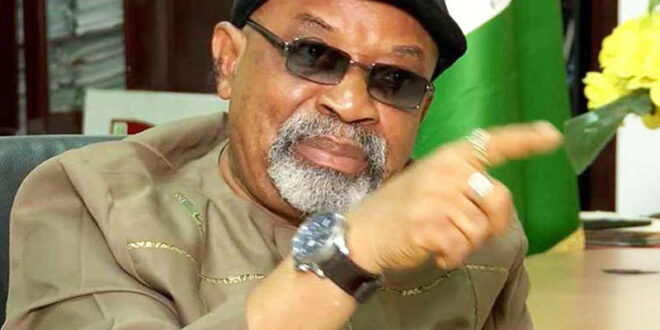Ebuka Daniel
The Institute of Chartered Accountants of Nigeria on Tuesday blamed the high unemployment rate in Nigeria to lack of the requisite skills and undue premium placed on certificates by employers of labour.
Over 23.19 million Nigerians according to the National Bureau of Statistics report were unemployed during the fourth quarter of 2020. This is 33.3 per cent of the working population.
The country’s unemployment level is the second highest globally.
Speaking at the 50th annual accountants conference in Abuja, the ICAN President, Onome Joy Adewuyi said the lack of skills and placement on certificates were responsible for the unemployment rate.
She called for an urgent comprehensive review of the curricula of tertiary institutions in order to empower the youths with more competences, industry-relevant skills that will encourage entrepreneurship and reposition them for global competitiveness.
She said, “Very recently, the National Bureau of Statistics reported that about 23.5 million Nigerians are out of job. I dare say that lack of skills and the placement of undue premium on certificates, account for this trend in our country more than the economic recession from which the nation just escaped from.
“Pointedly, this is a clarion call for the urgent comprehensive review of the curricula of our tertiary institutions in order to empower our youth with more competences, with industry-relevant skills and demeanour that will encourage entrepreneurship and reposition them for global competitiveness.
“As a body, we have proactively taken on this public interest responsibility of reviewing the Accountancy curricula of tertiary institutions and presented same to the NUC and NBTE. We also extended this review to the secondary school level by helping WAEC and NECO to review the curriculum of accounting at that level.
“We charge other stakeholders including the government to do same for technical colleges and vocational institutions in order to rekindle the flame of entrepreneurship in our youths.”
Speaking on the theme of the conference, “The 4th Industrial Revolution: Boom for the Accounting Profession and Panacea for Pandemic,” she said it is designed to further interrogate these issues of Governance of Technology and Entrepreneurship which are embedded in the different sub-themes that have been carefully chosen for this landmark Conference.
She said the aim of ICAN is to reawaken participants’ understanding of how to take advantage of disruptive technology to reposition themselves, improve their value proposition and be future-ready Chartered Accountants.
The ICAN President said given the interplay of disruptive technology, globalisation, digitisation and COVID-19 pandemic, Chartered Accountants who are desirous of survival and success, must be at the forefront of digital innovation and be active participants in shaping the future of the profession and businesses in general.
She added, “Indeed, the true accountant of the future would be strategic thinkers vast in analytics and modelling required for making informed economic decisions and accurate predictions for business growth and expansion.
“With the right skills, chartered accountants can become the drivers of the business and economic transformation rather than becoming victims of it. In other words, when technology is being integrated into businesses and associated processes, chartered accountants must be at the centre as facilitators and drivers. They must rethink their roles by learning to leverage technology to enhance their value propositions.”
In his speech at the event, President Muhammadu Buhari said the theme of the year’s conference was very timely, apt as it captures the digital economy policy and strategy of the present administration’s priority in information technology as the Federal Government is willing to partner Academia in Information Technology Profession and other stakeholders for Nigeria to play an active role
in the fourth industrial revolution era.
Represented by the Minister of Finance, Budget and National Planning, Zainab Ahmed, the President said with the evolution of the Fourth Industrial Revolution, Nigeria stands on the brink of a technological revolution that will fundamentally alter the way we live, work & relate to one another.
He said, “Our role as an agent of government is to continue to work closely with all stakeholders to design initiatives that would engender economic growth, improve contribution to GDP, wealth and job creation.
“It is my belief that the outcome of this Conference will assist the government in evolving an effective policy framework and defining the path for inclusive sustainable growth and development.
“I wish to inform this gathering that the present administration has made tremendous efforts and progress in our Digital transformation journey as a nation. A lot of resources and commitments have been invested in the digitalization of public finance management processes.”
He gave some of the processes that have been digitised as Integrated Payroll and Personnel Information System; Government Integrated Financial Management Information System; Project Lighthouse; Biometric Identification Infrastructure such as Tax Identification Number.
All these, he noted are reforms aimed at improving the overall fiscal conditions with respect to revenue generation and optimization.
ENDS
 The Commerce Africa African Reneissance
The Commerce Africa African Reneissance


